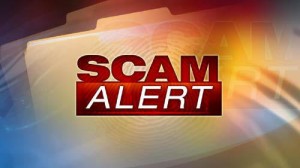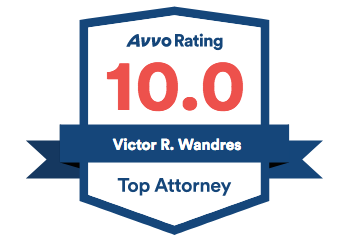Is this debt collector real?
Dear Tulsa Debt Collection Harassment Lawyer:
I received a call from a private number by a man who did not identify himself telling me had a claim against me and was going to come to my home and serve me with papers. He gave me a toll free number and told me I should call and “settle out of court.” I called the number and guess what? The same guy answers but I get transferred to my “account person.” This person told me they were calling about an old charged off bank account I opened in 2004 in the state of Washington. Does any of this sound fishy? Do they have any real power?
Answer:
Maybe, but probably not. It is difficult to know whether this is a legitimate debt collection agency, or just a scam artist that has managed to (illegally) obtain a copy of your credit report. It sounds like the initial caller violated the FDCPA by not identifying himself. According to the Fair Debt Collection Practices Act, a debt collection company may not use deceptive means to attempt to collect any debt. Additionally, a debt collection agency may not use any false, deceptive or misleading representations in connection with the collection of a debt. If the caller told you that a lawsuit was imminent by telling you that they were going to “serve you with papers,” and they did not actually intend to file a lawsuit, this is also a violation of the FDCPA. However, if it is just a scam artist calling you, it is very difficult to go after them.
 Is it a Scam Artist?
Is it a Scam Artist?
Consumers across the country report that they’re getting harassing calls from people seeking to recover on loans or credit consumers received but where the creditors never authorized the callers to collect for them. The Federal Trade Commission (FTC), the nation’s consumer protection agency, is warning consumers to be on the alert for scam artists posing as debt collectors. It may be hard to tell the difference between a legitimate debt collector and a fake one. Very often a fake collector has your personal information, like a social security number or bank account number from your credit report.
A caller may be a scam artist if he:
• Is seeking payment on a debt for a loan or credit you do not recognize.
• Refuses to give you a mailing address.
• Doesn’t have a website.
• Asks you for personal financial or sensitive information.
• Exerts high pressure to try to scare you into paying, such as threatening to have you arrested, serve you with “papers,” or filing a lawsuit “immediately.”
Many of our clients receiving these harassing calls have used a small loan or “payday” loan service. We believe this industry is full of scams unfortunately. Here’s what you do if you think that the caller might be a scam artist:
Ask the caller for his name, company, street address, telephone number and website. Tell the caller that you refuse to discuss any debt until you are mailed a “validation notice.” If a caller refuses to give you all of this information, do not pay! Paying a fake debt collector will not always make them go away. They may make up another debt to try to get more money from you.
Stop speaking with the caller. Ask for their address to write to them. Demand that the caller stop contacting you by phone, and tell them you revoke your consent to have them call your cell phone number. By law, real debt collectors must stop calling you if you ask them in writing, and may no longer contact you on your cell phone if you have orally “revoked consent.” If they refuse to give you their address, they’re fake!
Do not give the caller personal financial or other sensitive information. Never give out or confirm personal financial or other sensitive information like your bank account number, credit card, or Social Security
number unless you know whom you’re dealing with.
“Google” the number. There may be others out there who are also experiencing this sort of harassment. Some websites even track abusive telephone calls such as free reverse phone number look-ups, like www.800notes.com
Contact your creditor. If the debt is legitimate – but you think the collector may not be – contact your creditor about the calls. Share the information you have about the suspicious calls and find out who, if anyone, the creditor has authorized to collect the debt.
Report them to the FTC, the CFPB, and the Oklahoma Attorney General. Unfortunately, if they are just fly-by-night scammers, then there is little that we, or any other consumer protection attorney, can do for you. Reporting them to your local police department, the FTC, the CFPB, and the Oklahoma Attorney General’s Office is your best option. Please file a complaint against the scam artist debt collector with the CFPB here. You can also file a complaint for the harassing calls against the collector with the FTC here. You can file a complaint with the Oklahoma Attorney General’s office here. We recommend that you file all 3 complaints for the debt collection harassment you experienced.
If you still have concerns whether the caller is a scam artist, please feel free to contact our firm using the webform on the right of this page. Please give us all numbers being used or that were given to you by the caller.



